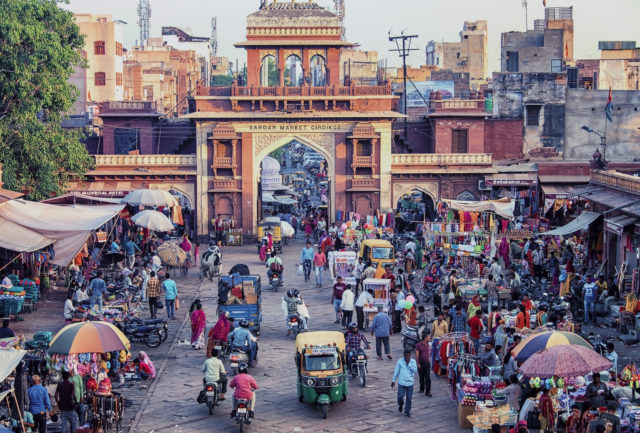
To emerge stronger in the medical devices sector, we need to collaborate with the global med-tech industry for its R&D-driven approach
The outbreak of the pandemic has considerably highlighted the need for India to redefine its goals and priorities for the future. It has paved the way for necessary amendments required in the country’s health infrastructure at the primary and secondary level. It is often said that the experiences and lessons of the past shape our future. One relevant question to be raised in the status quo would be how much a country like India, that houses a population of 1.3 billion, has learnt from the outbreak? And what measures is it taking to battle the ongoing crisis at a time when the world order seems to be away from the normal?
With the push for “Vocal for local” gaining momentum in the country, many experts have time and again pointed out the gradual shift in global supply chains, highlighting India as one of the most favoured destinations for investment and growth in the world. However, one question remains unanswered. Will India be able to provide a stable business environment to drive future investments in manufacturing and other services, without being willing to provide market access to global firms? Also, is the Indian health technology sector sufficient to cater to the needs of the domestic market?
The answer to this question remains ambiguous. As per Invest India, the medical device and equipment market in India is only worth $5.5 billion, further highlighting the nascent stage it is in. While the domestic industry has the capacity to manufacture and export low-risk medical devices and equipment, India still lacks an adequate supplier ecosystem and thus the capacity to manufacture high-risk, life-saving, critical care medical devices and equipment. At a time when India imports nearly 80 per cent of its medical devices and has an unstable policy environment, it is important for the country to build capacity within the existing subsets of the health infrastructure, rather than just focussing on becoming self-reliant by adopting a one-sided approach.
The Government, in its action plan to fight Covid-19, recently announced an exemption on basic customs duty and health cess on the import of select medical equipment. This includes surgical masks, ventilators, personal protection equipment and Coronavirus-related test kits till September 30. This comes at a time when the Government in its 2020-21 Union Budget had claimed that the intention to impose a five per cent health cess was to boost the growth of the domestic industry and generate resources for health services. With an additional health cess in place, many health experts speculated that companies would pass on the additional burden to patients with an expected pressure of three-five per cent on pricing.
Another pressing concern is whether India needed a pandemic as a wake-up call to understand the need for adequate medical equipment in the country. It is not a hidden fact that the medical devices sector has always been the backbone of the health infrastructure. The med-tech sector has always shown its commitment towards public health and has ensured uninterrupted supply of medical devices despite numerous challenges. Therefore, it may prove to be disastrous for India’s public health if the Government were to adopt an inward-looking approach and only boost domestic manufacturers. This, even after being well-aware of how most of the domestic industry players are not even close to their global counterparts when it comes to research and development (R&D) facilities, manufacturing units and matching up to the universal quality and safety standards.
To emerge stronger in the medical devices sector, India needs to globally collaborate with the med-tech industry for its innovation and research-driven approach. Considering the nascent stage the Indian medical devices industry is in, it becomes important to look beyond the surface and understand how investment from trusted players can help the small and medium industries of the country to contribute to R&D so that they can do value-addition to their medical devices. India cannot aim to achieve its goal of becoming self-reliant overnight with no significant presence of local manufacturers and products that measure up to global quality and innovation standards.
Although the Government is doing everything it can to strengthen its resolve to make affordable healthcare available to its citizens, the approach to solve the affordability issue without laying emphasis on quality healthcare is not the right way forward. What India needs right now is better access to quality healthcare, with an innovation-driven approach. Just like the Government exempted customs duty on Covid-19-related medical equipment, it should also consider removing the additional cess from high-risk and critical care medical devices so that there is no supply issue in the country at large. With the progress India is making, it would not be wrong to say that with the right long-term vision, there is no stopping it from becoming self-reliant. However, till then, India should take one step at a time, starting from focussing on bridging the gaps in its existing healthcare infrastructure and drawing inspiration from what the global med-tech sector has to offer.
(Writer: Tanu priya; Courtesy: The Pioneer)








 OpinionExpress.In
OpinionExpress.In















Comments (0)